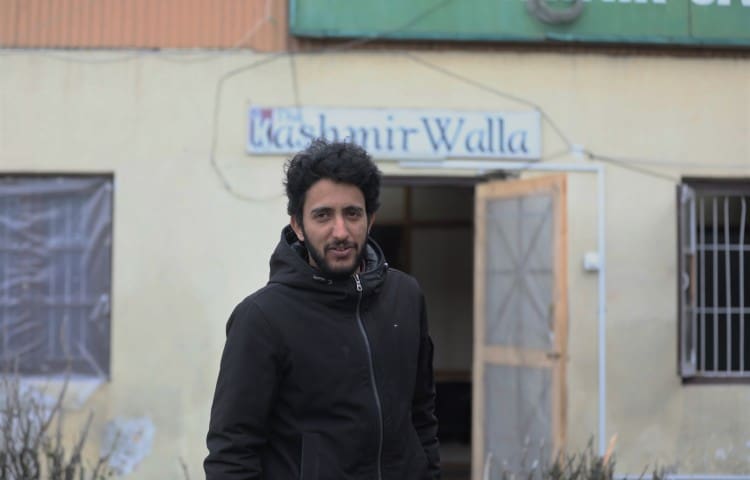
After being granted bail by the Jammu and Kashmir High Court last week, Kashmiri journalist and editor Fahad Shah is expected to be released soon.
After 21 months in imprisonment, the J-K High Court granted him bail on Friday and dropped several of the charges against him, including Section 18 (terror conspiracy), Section 121 (waging war against the nation), and Section 153-B (imputations, assertions prejudicial to National integration) of the Indian Penal Code (IPC).
Shah was taken into custody by the Pulwama police on 4 February 2022, on charges of sedition and anti-terror law. This arrest unfolded after The Kashmir Walla published an article on a gunfight that broke out between militants and government forces in south Kashmir. On 26 February, the National Investigative Agency (NIA) court in Srinagar granted him bail. But it was followed by his rearrest in three separate cases pertaining to the reporting on his portal which included Public Safety Act (PSA) as well.
The PSA decision against Shah was quashed by the J-K High Court in April of this year, citing the “non-application of mind” on the part of the detaining authorities and calling Shah’s incarceration “illegal.”
Judiciary Wasim Sadiq Narwal’s single bench of the High Court observed that the authorities “did not carefully evaluate and apply their thoughts while passing the detention order.”
Shah was jailed in a 2011 “seditious” article case that Shah’s news portal published, despite having obtained three bails—two in UAPA cases and one quashing the Public Safety Act (PSA) order—during his arrests. Shah was given bail last week and will probably be released shortly.
Last week, the division bench of Justice Atul Sreedharan and Justice Mohan Lal said that the investigating agency would have to justify the arrest on the anvil of “clear and present danger” of the accused to the society at large, if enlarged on bail.
“The existence of prima facie evidence against the accused is to no avail if there is no justification for the arrest based on the doctrine of clear and present danger to the society,” the order said.
“We are of the opinion that prima facie, offence u/s. 18 of the UAPA is not made out as the act of the Appellant does not come within definition of a terrorist act u/s. 15 of the UAPA as prima facie there is no material to suggest that the article hosted by the Appellant has any content that provokes people to take to arms and resort to violence,” it said.
“As regards 121 IPC, we are of the opinion that the material on record does not disclose the commission of the offence of waging war against the Government of India. As regards the offence u/s. 153-B IPC is concerned, the offending article does not attempt to bring about disaffection on the basis on caste or religion. Therefore, we opine that the offence u/s. 153-B is not made out from the material on record,” the order reads.
As regards the offence u/s. 35 and 39 of the FCRA, there is sufficient material to take the prima facie view that the Appellant had received remittances from overseas without intimating the authorities about it and therefore, there is sufficient evidence for the Appellant to stand trial for the same.
The order said that the act was allegedly done eleven years back. From then till date, no evidence has been brought on record that the offending article was responsible in provoking persons to take to militancy.
“Not a single witness says this. The other cases in which the Appellant was arrested, he has been enlarged on bail in all of them. On facts also, the bar of the proviso to s. 43D (5) is not applicable in this case as the act of the Appellant does not fulfil the requirements of s. 15 of the UAPA and therefore, the Appellant cannot be tried for the offense u/s. 18 of the UAPA,” the order reads.
The Court ruled that there was enough evidence to prima facie hold that the petitioner can be tried for offense under Section 13 of UAPA.
The Court determined that there was insufficient evidence in the file to support the accusation of waging war against the Government of India.
“As regards the offence under Section 153B IPC is concerned, the offending article does not attempt to bring about disaffection on the basis on caste or religion,” the Court said further.
In accordance with the Information and Technology Act of 2000, the Union IT ministry took down The Kashmir Walla website in August this year of his PSA quashment.
Meanwhile, Sajad Gul, a trainee reporter for Kashmir Walla, was detained prior to Shah’s arrest and earlier this month, Justice M.A. Choudhary ordered his release while quashing his PSA detention.



